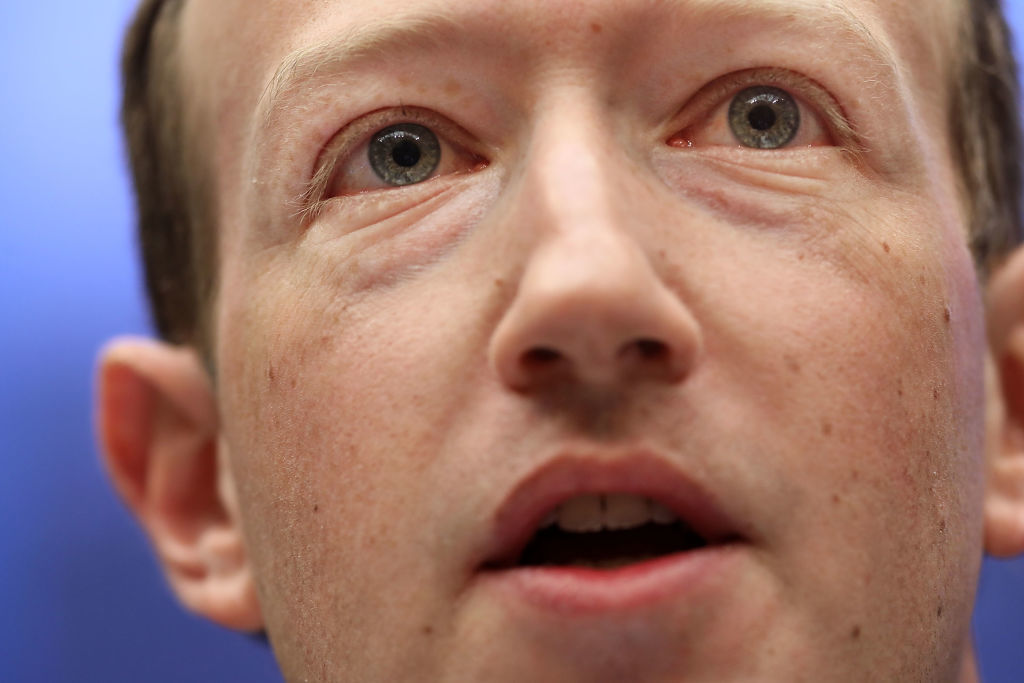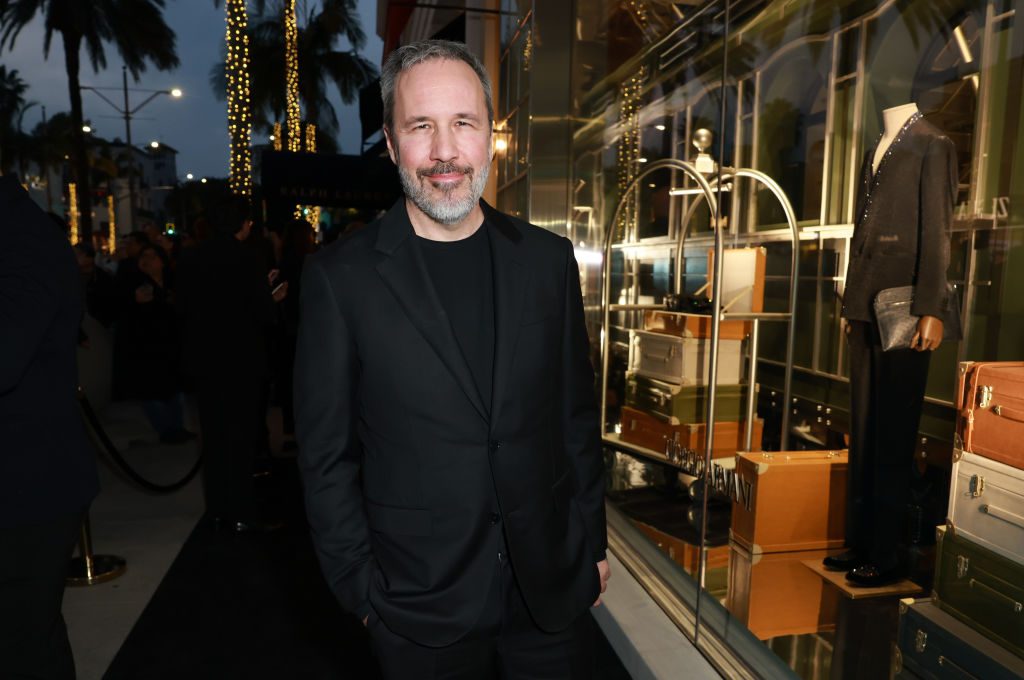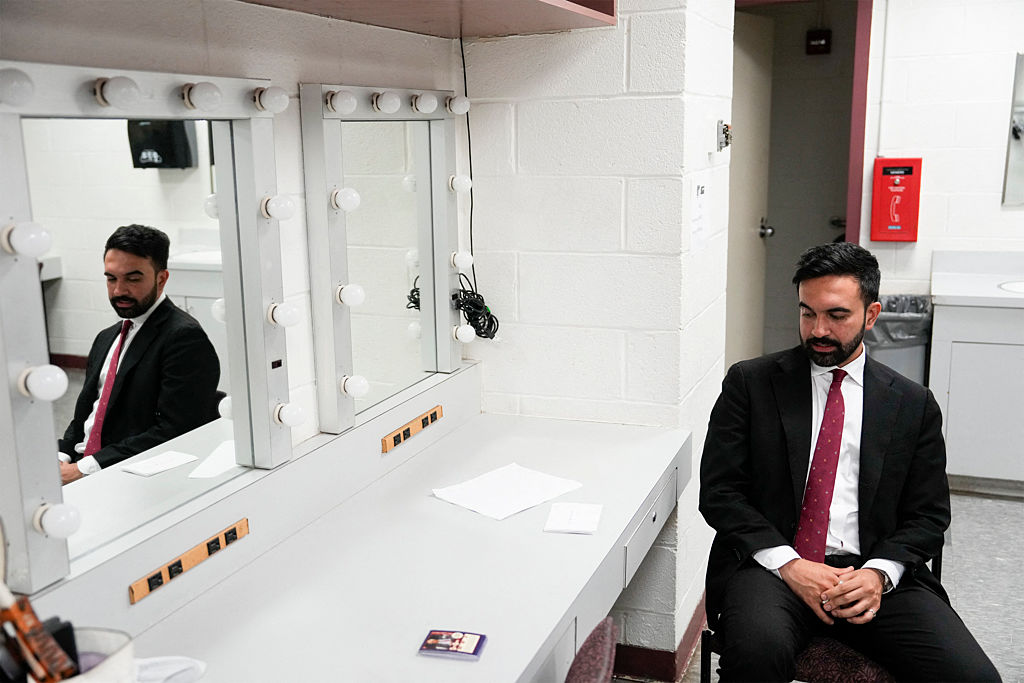Mark Zuckerberg came to Washington this week. Just an ordinary, common-sense guy, with matching hoodies in his roll-on, and a company that was worth well over half a trillion dollars before it emerged that it had shared its subscribers’ personal information, instead of sticking to its real business of selling that information to advertisers.
The future president wore a suit for his perp walk before the media and his Congressional cross-examination by some random old people. He could not help but look contemptuous—like the uncool grandchild of Mick Jagger and Keith Richards. Busted for drugs in 1967, Jagger and Richards knew that time was on their side. The suits they wore in court were protective coloring, a plea for lighter treatment, and a veiled threat that they and their millions of followers were just like the angry parents, only younger and better connected. The temporary meekness preceded their inheritance of the earth.
‘Who breaks a butterfly on the wheel?’ William Rees-Mogg, editor of the London Times, wrote in their defence in 1967, quoting Shelley. Who slaughters a digital goose, when it lays real golden eggs on Wall Street, and keeps the computers of the surveillance state humming? Jagger and Richards got off on appeal. Zuckerberg merely has to remind the committee of tech’s enduring appeal to the government. Quoting Facebook’s share price helps too.
Zuckerberg is the fall guy for an entire industry—in both its visible, commercial aspect, and its invisible, governmental aspect. The idea that the tech industry is unaccountable is only half true. The internet was born out of military R&D, and the tech industry grew as a client of California’s defense industry. It is the civilian, commercial internet that is heading for regulation. There seems to be little alternative: the tech giants have failed to police themselves.
So, two cheers for the ‘administrative state’. The bane of the Bannonites and the target of the Trumpists has, finally, grasped that the tech companies are violators of privacy and compromisers of liberty. The Republicans have a golden opportunity to recover the trust of ordinary Americans, the people that both parties have sold out to their donors. This is a populist moment, and the spirit of Theodore Roosevelt is abroad. Trust-busting would be a good way to restore the busted trust between the voters and Washington.
That, though, would only be a prelude to the next act of the bigger drama. Indeed, the show will go on regardless of whether the tech giants are dismembered like the railroad dinosaurs and telecom companies before them. It will go on better for us, though, if the tech companies are broken up. For the drama on Capitol Hill is only the curtain-raiser, and the exchanges of mock outrage and mock apology are only the scene-setters.
This week’s public displays mark the opening of marriage negotiations between Silicon Valley and Capitol Hill. Today, two massive bureaucracies are at odds. The old-fashioned bureaucracy of government waves threats of excommunication, but it already depends on technologies of digital bureaucracy, whether to send out Social Security checks, or send out drones to kill terrorists. Meanwhile, the civilian internet that we call Silicon Valley has used the same technologies to create databases of its own, and deployed them secretly for commercial gain. Tech is not the enemy of the state. It is a sectoral interest that shares a past and a future with the state.
Like medieval kings and popes, the government and the tech companies, the powers material and immaterial, are working out the terms of cohabitation. This week, Zuckerberg reached the end of his Road to Canossa. In 1076, Pope Gregory VII excommunicated the Holy Roman Emperor Henry IV, for undermining his authority. A year later Henry donned a hair shirt, the suit of penance. He trekked to the castle at Canossa, and waited for three days and nights on his knees. The Pope welcomed Henry back into the Church.
On Tuesday, Zuckerberg agreed in ‘principle’ that the tech companies should be regulated. He also said that he wants to guarantee fair elections in countries all over the world. That used to be the government’s job. Thus begins the division of temporal powers, the cutting of a deal. The American people are being cut out of that deal. The users of Facebook were never the consumers; they were the product. Now, we’re not the audience for the show at the Congressional committee. We’re the extras, cast in passive, non-speaking roles, like the peasants who worked to produce their tithes while Henry IV and Gregory VII were sharing a reconciliatory Mass.
The state isn’t going to kill the tech companies. It’s going to rejuvenate itself with their digital serum of youth, and repurpose itself for the twenty-first century. Just like the Communist Party in China which, unrestrained by all that bourgeois liberal cant about laws, rights, privacy and dignity, is storming ahead with facial recognition technology. And Silicon Valley will become ever richer and more powerful by alliance with the US government—untouchable, in fact.
For the last couple of years, people have feared that Donald Trump means the return of ‘fascism’. Totalitarianism will not come to America waving the Cross or the works of Ayn Rand, or by nostalgic absurdities like race theory and torchlit rallies. If it comes, it will come in the American way: new and shiny, an embrace of the future and the promise of transformation.
The tech business was betrothed to the government at birth by military R&D and government grants. Those investments have matured in Silicon Valley. We now face the union of government with the most powerful managerial technologies ever invented. Ironically, this is happening under Donald Trump, who promised to reduce government and liberate business.
Does anyone on the Congressional committee see what is at stake here? Judging from the calibre of questions yesterday, most of the committee have been dozing at the trough. When Zuckerberg explained to Orrin Hatch that Facebook makes its money from advertisers, he resembled a grandchild giving one of those cell phones with extra-large keys and no ancillary functions to an ailing grandparent, in case he takes a tumble in the bathroom. Who among the committee possesses elementary digital skills, such as taking a picture of his genitals and posting it to a stranger? For that much, we should be grateful. For the rest, and for the future of democracy, accountability, transparency, and freedom, we should be afraid.

























